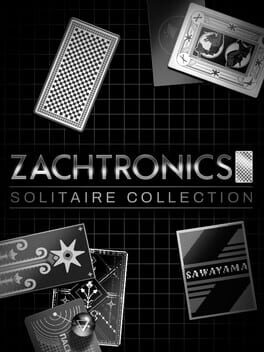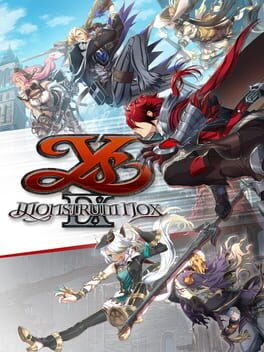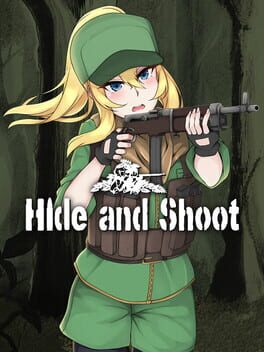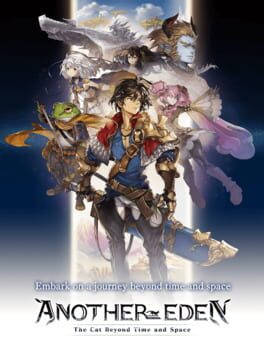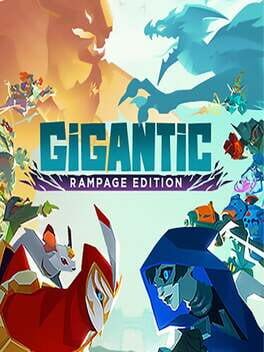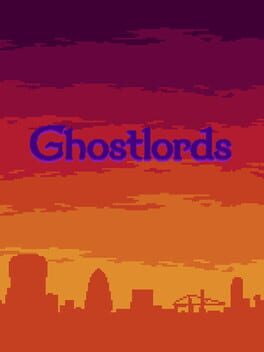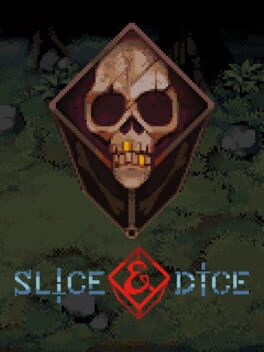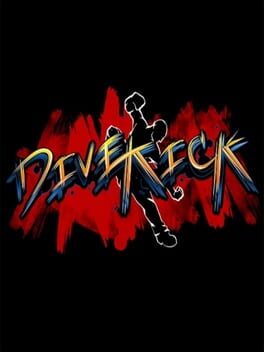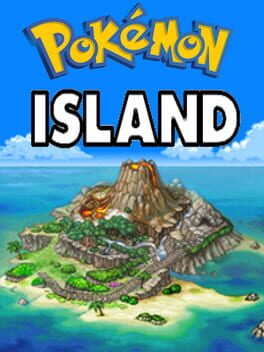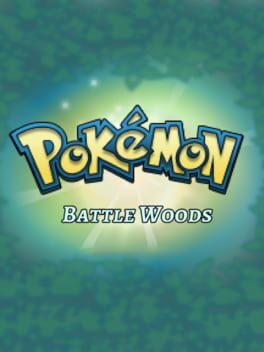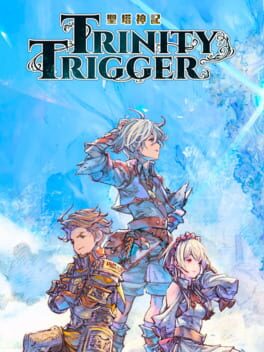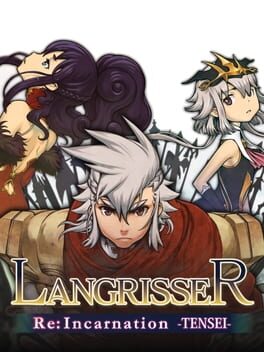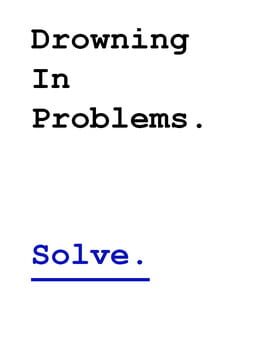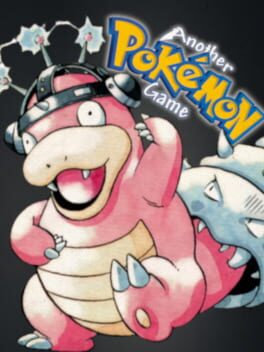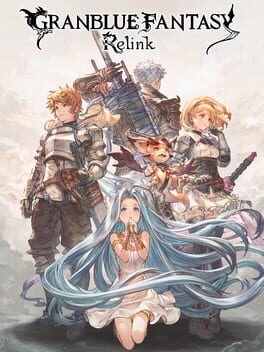umezono
I picked up Shenzhen Solitaire by Zachtronics a couple years ago and didn't think much of it. I played it a little and found it confusing and arcane. My mind couldn't think or plan ahead the way the game needed you to, and I got frustrated having to reset constantly.
For a long time I have struggled with feelings of inadequacy, in all aspects of my life. What is self-worth when you have so little with which to define one's self? The kind of destructive thinking that informs anything and everything you do. I have 3000+ hours on Paladins. More than half of that time I have probably spent frustrated- about my aim, my KDA, my game sense and knowledge. Constantly checking the stat trackers, getting discouraged that I can never be like the good players.
Shenzhen Solitaire has a way of sneaking up on you, as you sit there resetting the board. I got into the habit of clicking and slightly dragging a card over and over as I scan the board for possible routes, the way someone might shuffle or fidget with a physical deck of cards. The same droning ambient loop plays in perpetuity, to this day I don't even know if I really even like it. But I could listen to that loop for hours, and I did end up listening to it for hours. Turning it off was weird- the silence actually felt deafening.
Getting my first win was a revelatory moment, cause I had probably lost 50-100 times before I finally cleared the board. The feeling of accomplishment may have been the closest I had gotten to self-actualization in a long time. I have these moments of hyperfixation my entire life. They all matter to me in different ways, but solitaires a bit different. I felt like I was clearing cobwebs in my brain through constant iteration. I felt satisfied, and I realized I had stopped getting frustrated a long time ago. Awhile later, I reached 20 wins, and it clicked for me why it was working so well for me. It's because I was feeling, for a brief moment in the whirlwind of life, like I was actually at peace.
There's a lot of writing out there on what makes solitaire so compelling. Francine Prose wrote in Solitaire: Me vs. Me the following: "Like writing, it’s entirely private, the exertion is purely cerebral; you’re playing against yourself, against your previous best, against the law of averages and the forces of chance. You’re taking random elements and trying to put them together in a pleasing way, to make order out of chaos."
As I sit there, fighting against both my brain and the board state, I finally make a move that allows me to sort out an entire pile. I feel a feeling of elation that video games very rarely give me anymore. Its as if my thoughts have decayed by the constant low-level dread of depression, and I have sunk into the worst kinds of maladaptive coping mechanism. Competitive online gaming gave me an outlet to let out frustration and anxiety, but I rarely was feeling good whether I won or I lost. I was always on-edge, always annoyed at something. Even the act of running the game itself became a source of anxiety. Researching monitors, FPS optimizations, mouse polling rates and DPI. Everything felt like a constant tightrope and I think to myself, when did this stop being a game? When did I stop having fun doing this?
Zachtronics Solitaire Collection has allowed me a calm respite in the storm of my thoughts- a world in which I can both relax and challenge myself in a healthy manner. While regular Freecell and Klondike solitaire are very simple conceptually, they provide a solid blueprint for creatives to remix into extremely deep play experiences.Fortune's Foundation, with its beautiful tarot cards and complicated ruleset, is a particular standout. It has so many possible fail states that Zach included an Undo button, which is somewhat of a rarity in the popular Solitaire-likes. Even with the option, it's such a difficult game that I have yet to clear it. I have gotten close- so tantalizingly close- only to realize an action I made 50 moves ago has painted me in a corner. I realize it, I note where I went wrong, I reset, and I try again.
I think it has taught me to deal with failure in a far more healthy way. I come from a career field where making a mistake is met with open hostility, and I make many mistakes. It's so easy to internalize failure in the immediate moment as an inherent failing of either the self or others. In the smorgasboard of sight and sound that is competitive gaming, where its so easy to tie your self-worth with your mechanical skill, it becomes natural to spiral into the worst impulses.
The repetitive, calming nature of solitaire has become a therapeutic exercise for me, in ways I mostly imagined games to be. I long called gaming my coping mechanism- but it was hardly anything like that. Being able to find an experience like this, in solitude, has made all the difference for me. Gaming is a personal experience, as all art is. So what makes something like a standard deck of cards into a meditative gaming experience is just that.
In Solitaire, all that awaits failure is the humdrum ambience of the background and the opportunity to reset the board and try again. In solitude, I learned to center myself in the moment rather than allow my anxiety to consume my every thought. In solitude, I learned to give myself a chance.
For a long time I have struggled with feelings of inadequacy, in all aspects of my life. What is self-worth when you have so little with which to define one's self? The kind of destructive thinking that informs anything and everything you do. I have 3000+ hours on Paladins. More than half of that time I have probably spent frustrated- about my aim, my KDA, my game sense and knowledge. Constantly checking the stat trackers, getting discouraged that I can never be like the good players.
Shenzhen Solitaire has a way of sneaking up on you, as you sit there resetting the board. I got into the habit of clicking and slightly dragging a card over and over as I scan the board for possible routes, the way someone might shuffle or fidget with a physical deck of cards. The same droning ambient loop plays in perpetuity, to this day I don't even know if I really even like it. But I could listen to that loop for hours, and I did end up listening to it for hours. Turning it off was weird- the silence actually felt deafening.
Getting my first win was a revelatory moment, cause I had probably lost 50-100 times before I finally cleared the board. The feeling of accomplishment may have been the closest I had gotten to self-actualization in a long time. I have these moments of hyperfixation my entire life. They all matter to me in different ways, but solitaires a bit different. I felt like I was clearing cobwebs in my brain through constant iteration. I felt satisfied, and I realized I had stopped getting frustrated a long time ago. Awhile later, I reached 20 wins, and it clicked for me why it was working so well for me. It's because I was feeling, for a brief moment in the whirlwind of life, like I was actually at peace.
There's a lot of writing out there on what makes solitaire so compelling. Francine Prose wrote in Solitaire: Me vs. Me the following: "Like writing, it’s entirely private, the exertion is purely cerebral; you’re playing against yourself, against your previous best, against the law of averages and the forces of chance. You’re taking random elements and trying to put them together in a pleasing way, to make order out of chaos."
As I sit there, fighting against both my brain and the board state, I finally make a move that allows me to sort out an entire pile. I feel a feeling of elation that video games very rarely give me anymore. Its as if my thoughts have decayed by the constant low-level dread of depression, and I have sunk into the worst kinds of maladaptive coping mechanism. Competitive online gaming gave me an outlet to let out frustration and anxiety, but I rarely was feeling good whether I won or I lost. I was always on-edge, always annoyed at something. Even the act of running the game itself became a source of anxiety. Researching monitors, FPS optimizations, mouse polling rates and DPI. Everything felt like a constant tightrope and I think to myself, when did this stop being a game? When did I stop having fun doing this?
Zachtronics Solitaire Collection has allowed me a calm respite in the storm of my thoughts- a world in which I can both relax and challenge myself in a healthy manner. While regular Freecell and Klondike solitaire are very simple conceptually, they provide a solid blueprint for creatives to remix into extremely deep play experiences.Fortune's Foundation, with its beautiful tarot cards and complicated ruleset, is a particular standout. It has so many possible fail states that Zach included an Undo button, which is somewhat of a rarity in the popular Solitaire-likes. Even with the option, it's such a difficult game that I have yet to clear it. I have gotten close- so tantalizingly close- only to realize an action I made 50 moves ago has painted me in a corner. I realize it, I note where I went wrong, I reset, and I try again.
I think it has taught me to deal with failure in a far more healthy way. I come from a career field where making a mistake is met with open hostility, and I make many mistakes. It's so easy to internalize failure in the immediate moment as an inherent failing of either the self or others. In the smorgasboard of sight and sound that is competitive gaming, where its so easy to tie your self-worth with your mechanical skill, it becomes natural to spiral into the worst impulses.
The repetitive, calming nature of solitaire has become a therapeutic exercise for me, in ways I mostly imagined games to be. I long called gaming my coping mechanism- but it was hardly anything like that. Being able to find an experience like this, in solitude, has made all the difference for me. Gaming is a personal experience, as all art is. So what makes something like a standard deck of cards into a meditative gaming experience is just that.
In Solitaire, all that awaits failure is the humdrum ambience of the background and the opportunity to reset the board and try again. In solitude, I learned to center myself in the moment rather than allow my anxiety to consume my every thought. In solitude, I learned to give myself a chance.
2019
There's a story beat in Ys IX: Monstrum Nox where the large Pendleton company, the major employer within the city, has systematically disenfranchised the people of shantytown situated alongside the literal sewers. There's a chivalrous Robin Hood-esque figure who steals from the Pendleton company and gives to the poor residents, and the game's message is to admonish this figure for doing so by showing multiple scenes of the poor people being lazy and indolent and wasting the assistance on booze. The ending to this particular subplot is so blatant as to be insulting - the solution is to start your own business and show the rest of peasantry that you can climb out of the sewers with hard work (and perhaps some generous private subsidies). This is the product of Japanese sociocultural attitudes toward capitalism, much like its partners in the West. Poverty is treated as an individualist issue, one inextricably tied to moral fundamentalism. You're poor because you have bad habits. I'm rich because I work hard. It's worse than garbage writing, its some of the most irresponsible neoliberal wankery I have ever had the misfortune of experiencing. Game sucks.
2020
2017
"But it is also possible that since the film is only concerned with producing a set of marketable effects, it cannot at the same time be concerned with producing the minimal internal consistency required to produce a meaning."
- Nicholas Brown, The Work of Art in the Age of its Real Subsumption under Capital (2012)
My enjoyment of Another Eden has solidified my issue with Mihoyo gacha games. No matter how much you viral market your games to be these epic singleplayer experiences on par with traditional console RPGs, the stamina system automatically makes them 10x worse. That's what hampers these titles as games to me. The profit motive itself becomes a game mechanic. Or lack thereof.
Another Eden feels like a good case study on how live service doesn't necessarily doom a game to feeling like a dopamine stimulant rather than a genuine experience, but it still has issues emblematic of the format. The microtransactions are obscenely expensive and the currency gain is extremely slow. It feels like overcompensation for how "F2P-friendly" the game feels at face value. Everything can supposedly be cleared with non-gacha units (per Reddit testimonials, so I can't verify whether this is true) collaboration units are permanently available, no stamina system. They have to make their money somehow. Just feels like a pockmark on what is otherwise a pretty coherent experience. It's nothing special, but it feels more like something I would actually play to play, rather than play out of a fear of missing out.
Adorno would spontaneously combust if he ever learned about a battle pass.
- Nicholas Brown, The Work of Art in the Age of its Real Subsumption under Capital (2012)
My enjoyment of Another Eden has solidified my issue with Mihoyo gacha games. No matter how much you viral market your games to be these epic singleplayer experiences on par with traditional console RPGs, the stamina system automatically makes them 10x worse. That's what hampers these titles as games to me. The profit motive itself becomes a game mechanic. Or lack thereof.
Another Eden feels like a good case study on how live service doesn't necessarily doom a game to feeling like a dopamine stimulant rather than a genuine experience, but it still has issues emblematic of the format. The microtransactions are obscenely expensive and the currency gain is extremely slow. It feels like overcompensation for how "F2P-friendly" the game feels at face value. Everything can supposedly be cleared with non-gacha units (per Reddit testimonials, so I can't verify whether this is true) collaboration units are permanently available, no stamina system. They have to make their money somehow. Just feels like a pockmark on what is otherwise a pretty coherent experience. It's nothing special, but it feels more like something I would actually play to play, rather than play out of a fear of missing out.
Adorno would spontaneously combust if he ever learned about a battle pass.
If Valorant represents the hero shooter at one extreme, Gigantic sits at the other: it is primarily a MOBA with shooter elements, more in a line with a traditional League of Legends or DoTA 2 experience than anything like Overwatch, Paladins or Apex Legends. Because of the massive burst damage and CC potential of the melee units, you get that tight negotation of space so emblematic of traditional MOBAs: players engaging in passive stare downs, waiting for the slightest perceptible opening to pounce. A high stakes game of chicken where there is just a hairs breadth between "overextending" into certain death or confirming a kill. In contrast, the ranged characters play and feel like your more traditional hero shooter fare, but the power that would come with so much map control has been heavily nerfed to compensate. Primary fire damage is low, time to kill is obscenely high, and everything revolves around disengagement and cooldowns. There's no creeps to farm, but the movement and mechanics are undoubtedly MOBA.
But these concepts don't translate as well as they probably should. I noted it in this game's Korean cousin, Storm Strikers, as well; this game's readability is complete trash. The time to kill being so high, you just get a crowd of characters wailing on eachother, spamming cooldowns with very little thought. Bright colors flash all over the screen, giant AOES of no discernible origin cover the ground, and giant white letters pop up to say "FROZEN. ARMOR BROKEN. SLOWED. POISONED. VOID GRIPPED." It's just graphical vomit, the kind people will tell you "Don't worry bro, it all makes sense after 1000 hours bro, I swear bro." Be that as it may, the problem with these games is player retention, and it doesn't have the benefit of the older MOBAs long-running communities to fall back on. New players are not going to know what is killing them, how fast and why. It might be novel while everyone plays with the new toy; but as the playerbase wanes and the skill gap widens this is going to be a problem. Just ask Storm Strikers with its 10 daily players.
As a long time player of these titles, I know good concepts when I see them, and Gigantic has some really strong points in its favor. The game has great pacing in the current "Rush" mode and I feel like it rewards both game sense and high mechanical skill equitably. I can see why this game had a diehard community, and it's satisfying to see these players get their game back in the era of GaaS. Many of my favorite MOBAs and hero shooters are gone for good, casualties of a mix of bad marketing and corporate greed. I never even got to play Gigantic before it got hit with the end of service announcement. Now that I've finally played it, I can see both why its loved and why it was canned.
Games like this need to focus on player retention, especially if they are paid titles. So the developers undoubtedly have their work cut out for them. Framerate optimization, server stability and UI fixes stand out as the most important pain points; but the new user onboarding has to also be drastically improved. Then it is a matter of making sure those players stay onboard- and the answer is never a battle pass or balance patches. What we need to see out of Gigantic is alternate ways to play the game- as these sorts of options are appeal to casual userbases. Different gamemodes are an important part of the hero shooter ecosystem because they allow for healthier player seperation. Let the tryhards dominate modes with more competitive depth, but give the normal players a low-stakes gamemode where they can just relax and turn their brains off.
As it is, Gigantic feels doomed to fail, but all hope is not lost if the developers have been paying as close attention to the industry as the players have.
But these concepts don't translate as well as they probably should. I noted it in this game's Korean cousin, Storm Strikers, as well; this game's readability is complete trash. The time to kill being so high, you just get a crowd of characters wailing on eachother, spamming cooldowns with very little thought. Bright colors flash all over the screen, giant AOES of no discernible origin cover the ground, and giant white letters pop up to say "FROZEN. ARMOR BROKEN. SLOWED. POISONED. VOID GRIPPED." It's just graphical vomit, the kind people will tell you "Don't worry bro, it all makes sense after 1000 hours bro, I swear bro." Be that as it may, the problem with these games is player retention, and it doesn't have the benefit of the older MOBAs long-running communities to fall back on. New players are not going to know what is killing them, how fast and why. It might be novel while everyone plays with the new toy; but as the playerbase wanes and the skill gap widens this is going to be a problem. Just ask Storm Strikers with its 10 daily players.
As a long time player of these titles, I know good concepts when I see them, and Gigantic has some really strong points in its favor. The game has great pacing in the current "Rush" mode and I feel like it rewards both game sense and high mechanical skill equitably. I can see why this game had a diehard community, and it's satisfying to see these players get their game back in the era of GaaS. Many of my favorite MOBAs and hero shooters are gone for good, casualties of a mix of bad marketing and corporate greed. I never even got to play Gigantic before it got hit with the end of service announcement. Now that I've finally played it, I can see both why its loved and why it was canned.
Games like this need to focus on player retention, especially if they are paid titles. So the developers undoubtedly have their work cut out for them. Framerate optimization, server stability and UI fixes stand out as the most important pain points; but the new user onboarding has to also be drastically improved. Then it is a matter of making sure those players stay onboard- and the answer is never a battle pass or balance patches. What we need to see out of Gigantic is alternate ways to play the game- as these sorts of options are appeal to casual userbases. Different gamemodes are an important part of the hero shooter ecosystem because they allow for healthier player seperation. Let the tryhards dominate modes with more competitive depth, but give the normal players a low-stakes gamemode where they can just relax and turn their brains off.
As it is, Gigantic feels doomed to fail, but all hope is not lost if the developers have been paying as close attention to the industry as the players have.
2016
Ghostlords feels completely out of place next to developer Kyle Rodgers' other output. No offense intended at stuff like Emoji Tower Defense or Bread Duck, cause they are obviously personal projects aimed at learning programming and game design. It is just quite the novelty to see a scenario-based JRPG with a monster collection system among the rest of his work. And Rodgers actually did a solid job of realizing this vision. While it is unfortunately relying on the dreaded "roguelite elements" for encounters and map layout, the campaign I finished was short enough that this didn't pose too many issues. The art has this amateurish MS-DOS quality that is frankly ugly, but some of the monster designs are hilarious. Like the little freezer with googly-eyes. Inevitably there is a lot of jarring tonal inconsistency when you have an armor-clad "Justice Knight" next to a sentient freezer box, but it works a lot better than if the game tried to play things 100 percent seriously. The irreverence skews similar to Shin Megami Tensei. I think Rodgers simply didn't have the means to go for a more serious endeavor and that is fine, because the results are far more interesting. Combat is somewhat of a mixed bag, with stock-standard mechanics but a harsh difficulty curve. My personal experience with the endgame reflected this, as every fight came down to the wire and required careful sequencing and sacrificial gambits. The free switch mechanic I think somewhat undermines this, but its a necessary evil due to how much raw damage the later enemies deal on even resisted hits. I actually quite enjoyed it in comparison to the earlygame stretch.
While the game doesn't particularly have any strategic or narrative depth for video essayists to dissect, I find genuine value in ambitious indies like Ghostlords because of the potential of the concepts they play with. The setting and specific mythology used for the monster designs; the level-up system allowing you to choose between new moves or passive bonuses; the shared energy bar system between the monsters; the overall structure of the game as 5 distinct but interconnected roguelike campaigns; these are just some of the ideas present that could be further explored. Rodgers is a smart developer and he has a lot of room to grow if he ever chose to dip his toes back into RPGs, to the point that I frankly think it would be a waste if he never did so again.
While the game doesn't particularly have any strategic or narrative depth for video essayists to dissect, I find genuine value in ambitious indies like Ghostlords because of the potential of the concepts they play with. The setting and specific mythology used for the monster designs; the level-up system allowing you to choose between new moves or passive bonuses; the shared energy bar system between the monsters; the overall structure of the game as 5 distinct but interconnected roguelike campaigns; these are just some of the ideas present that could be further explored. Rodgers is a smart developer and he has a lot of room to grow if he ever chose to dip his toes back into RPGs, to the point that I frankly think it would be a waste if he never did so again.
2021
I'll keep it simple: it just hits a sweet spot of polish that I can't really fault it for anything. I don't think tann is doing anything new with Slice & Dice, but they are doing everything well. It feels like a gold standard when it comes to scale for a game like this. 20 randomly generated waves, 5 randomly generated heroes, and upgrades between each round. The combat is standard Dream Quest or Slay the Spire but the pacing is much faster straight from the get-go. Health is low, enemy damage is high, and typically you're looking at a potential dead unit every turn. The undo mechanic ties everything together with a neat bow, allowing for players to explore different chains of combat resolution. The freedom to view cause-and-effect allows the player to easily understand some of the more deep interactions and plan around them. The reroll feature is also nice; it makes me wish there was the option to shuffle-draw in more deckbuilders as a standard. There are similar mechanics in Children of Zodiarc that has been quite enjoyable.
It's an exceedingly simple gameplay loop that you have definitely seen before in many other games, but it is the valedictorian. When it comes to broad descriptions of "replay value" and "bang for your buck," you can't beat an offering like Slice & Dice. The sheer amount of content will keep anyone receptive to it engaged for hours. It will be considered a classic in a couple years.
It's an exceedingly simple gameplay loop that you have definitely seen before in many other games, but it is the valedictorian. When it comes to broad descriptions of "replay value" and "bang for your buck," you can't beat an offering like Slice & Dice. The sheer amount of content will keep anyone receptive to it engaged for hours. It will be considered a classic in a couple years.
2013
It is a reflection of the crustiest self-indulgence and excess of the FGC before eSports began to sanitize everything. Full of jokes that will make no sense to all but a very small subset of a small niche of gamers. In a sense, its a time I am thankful we are past, because there were a lot of "influencers" within the community who were in fact very harmful people. As a fighting game, this doesn't even pass for something to run on a kusoge night. Its full of corny humor, ugly to look at and it isn't actually fun to play. They were more interested in epic references than trying to make the game at all appealing to anyone outside of their hyper-specific niche. Once again, a reflection of the nature of competitive fighting games during the era of Street Fighter IV.
This game would smell just like those green cans of Axe deodorant.
This game would smell just like those green cans of Axe deodorant.
2011
2022
A basic but effective roguelite, that trades the depth and gameplay variety of Emerald Rogue for the QOL of Pokemon Essentials. It is sadly buggy and unfinished; I freaked the game out by tricking a Choice Scarf onto Ferrothorn and PP stalling it. It caused a debug flood every turn, which means the developer probably never coded such an interaction. While I don't blame them for not knowing every nuance of competitive Pokemon, these sorts of fangames are always implicitly relying on such mechanics. You give me a Choice Band and Switcheroo in a game where the difficulty is this high, it's the natural next step.
I also find the balancing a little too on the punishing side, even for normal mode. Healing is very scarce and healing items are prohibitively expensive. In a game like Pokemon, switching is core to manuevering to your win condition- it is thus inevitable to rack up a ton of residual damage. In the context of a ten-floor roguelite involving competitive Pokemon mechanics, this gets pretty difficult. The AI is still quite stupid, but the game splashes just enough random coverage moves, held items and abilities to make it very challenging. Stuff like running into a Mega Gardevoir with Hidden Power Fighting.
The developer seems to have abandoned Battle Woods, which to me is kind of a disappointment. Emerald Rogue is undoubtedly the gold standard for roguelikes based off the main series gameplay (Mystery Dungeon, of course, remains the best crossover between Pokemon and Rogue) but the problem is... it's based on Pokemon Emerald. The battle animations are painfully slow, and having to use a fast forward macro in between actions is very cumbersome. In this regard, I feel Pokemon Essentials titles are far superior to their progenitors. The option to disable animations, among other QOL, vastly improves the formula. Things like ability capsules, EV and IV displays, and much more robust menus really improve the experience. On the other hand, there is just enough changed and things implemented from later generations that I'm not exactly sure what to expect. There aren't many resources on the internet regarding things like movesets and such, so it is very much a coin flip when it comes to match start. A bad lead matchup can mean losing 3+ Pokemon, and in Battle Woods any Pokemon that are fainted are removed at the end of the battle.
The non-battle rooms are well-designed enough, though a bit boring. Move relearners, egg moves, TM shop, a lottery, etc. It works well enough, but it lacks the unique and varied maps offered by Emerald Rogue. You are ensured a new Pokemon, as well as a teamwide heal, at fixed intervals; so you never really feel like you are totally screwed over when it comes to traversal.
The game has a total of 4 stages with something like 11 rooms each. If you play quickly, a run will last an hour to two hours and that's a decent session. Don't feel like I want to sit here obsessively playing again and again, such as I did with Slay the Spire, but only because I am so used to Pokemon. Just battling is great and all, and I love the aspect of building your team composition on the fly thanks to the roguelite mechanics, but its still just Pokemon battling. I have spent hundreds if not thousands hours doing it; in main series games, romhacks, fangames and Pokemon Showdown. So while the roguelite offers a fresh spin on the formula, there's nothing fantastic here. It lacks any story, it uses boring characters from the anime and generation 1 games, and it doesn't particularly innovate on the battling itself.
Overall, the game is a solid effort that would have greatly benefited from further active development. The balancing issues and bugs hold it back from being truly great, and that will remain the case for as long as it is abandoned. It is fun enough to give it a couple runs and try to hunt some achievements, but I don't see it being anything worth heavy time investment.
I also find the balancing a little too on the punishing side, even for normal mode. Healing is very scarce and healing items are prohibitively expensive. In a game like Pokemon, switching is core to manuevering to your win condition- it is thus inevitable to rack up a ton of residual damage. In the context of a ten-floor roguelite involving competitive Pokemon mechanics, this gets pretty difficult. The AI is still quite stupid, but the game splashes just enough random coverage moves, held items and abilities to make it very challenging. Stuff like running into a Mega Gardevoir with Hidden Power Fighting.
The developer seems to have abandoned Battle Woods, which to me is kind of a disappointment. Emerald Rogue is undoubtedly the gold standard for roguelikes based off the main series gameplay (Mystery Dungeon, of course, remains the best crossover between Pokemon and Rogue) but the problem is... it's based on Pokemon Emerald. The battle animations are painfully slow, and having to use a fast forward macro in between actions is very cumbersome. In this regard, I feel Pokemon Essentials titles are far superior to their progenitors. The option to disable animations, among other QOL, vastly improves the formula. Things like ability capsules, EV and IV displays, and much more robust menus really improve the experience. On the other hand, there is just enough changed and things implemented from later generations that I'm not exactly sure what to expect. There aren't many resources on the internet regarding things like movesets and such, so it is very much a coin flip when it comes to match start. A bad lead matchup can mean losing 3+ Pokemon, and in Battle Woods any Pokemon that are fainted are removed at the end of the battle.
The non-battle rooms are well-designed enough, though a bit boring. Move relearners, egg moves, TM shop, a lottery, etc. It works well enough, but it lacks the unique and varied maps offered by Emerald Rogue. You are ensured a new Pokemon, as well as a teamwide heal, at fixed intervals; so you never really feel like you are totally screwed over when it comes to traversal.
The game has a total of 4 stages with something like 11 rooms each. If you play quickly, a run will last an hour to two hours and that's a decent session. Don't feel like I want to sit here obsessively playing again and again, such as I did with Slay the Spire, but only because I am so used to Pokemon. Just battling is great and all, and I love the aspect of building your team composition on the fly thanks to the roguelite mechanics, but its still just Pokemon battling. I have spent hundreds if not thousands hours doing it; in main series games, romhacks, fangames and Pokemon Showdown. So while the roguelite offers a fresh spin on the formula, there's nothing fantastic here. It lacks any story, it uses boring characters from the anime and generation 1 games, and it doesn't particularly innovate on the battling itself.
Overall, the game is a solid effort that would have greatly benefited from further active development. The balancing issues and bugs hold it back from being truly great, and that will remain the case for as long as it is abandoned. It is fun enough to give it a couple runs and try to hunt some achievements, but I don't see it being anything worth heavy time investment.
2022
This is a McRPG. I mean that somewhat affectionately, because the team behind this game is pretty high pedigree. But this is the most inoffensive, toothless, middle of the road RPG I have played in awhile. The formula here is sanitized, a corporate approach to the genre. It's a McRPG. That's fine if you want more RPG. I love a McRPG now and then. This one just isn't hitting.
Also the screen tearing makes me nauseous. There is no VSync option and forcing it through your graphics card doesn't seem to work.
Also the screen tearing makes me nauseous. There is no VSync option and forcing it through your graphics card doesn't seem to work.
This might be one of the worst SRPGs ever made. It's as if somebody at Masaya saw Fire Emblem: Awakening and said "Just make something like that, I don't know." Every aspect of a once well-regarded series has been butchered to be unrecognizable. I know Langrisser wasn't a franchise with much appeal outside of Japan, but it's still unfortunate this was probably some people's first introduction to it. It reeks of desperation to co-opt trends, but fails to actually do anything enjoyable.
Satoshi Urushihara's art has always been a bit goofy, with the barbie doll-like proportions. But here, it has been replaced with generic nu-shonen abominations. Urushihara's art feels like it is from the Italian Renaissance in comparison. There are a ton of disgusting, pedophilic design choices such as putting what appear to be children into hyper-sexualized lingerie (just like Awakening, which I haven't forgotten). Within the first 15 minutes, there were three such cases of these designs. This was not an isolated decision, but rather a reflection of the trend of lowest-common denominator otaku bait.
The disconnect between this game and its predecessors almost makes me feel as if they took Langrisser and its mechanics and pasted it onto a concept they had for an original IP. We have seen when long-standing series need to reinvent themselves to face changing market realities. Awakening and later Three Houses were successful applications of careful market research used to revitalize their dying franchise. Re:incarnation Tensei has none of the nuance such games employ in bridging the old and new. You have a bare approximation of classic Langrisser combat, some of the music, the sword is called the "Langrisser Sword." Yet that is all hampered by the horrid presentation, and the baffling design choices. Listening to As a Knight play for 15 seconds during the results screen for a map had me looking like the wojak pulling at his eyes in despair. The complete disconnect between the music and the game itself is so stark: hearing music composed for a game full of genuine artistry be paraded on the rotting, bloated corpse of the franchise at that point in time.
The art is hideous and the actual battle animations are just as bad. The overworld sprites show just a bit of promise- that is, until you start combat and its two Funko Pops running at eachother with a total of 5 frames of animation between them. Not joking here. They run at eachother and wiggle a bit. That's the ENTIRE combat animation. It is shockingly lazy considering the game this is trying to bite off of. The captain units, which traditionally have a squadron surrounding them, fight alone and it looks jarring during the combat sequence. Your recruits are still depicted as full squadrons- why did they change how the leader units work? It just looks embarrasingly bad; as if some sort of extreme budget cut happened midway through development. I wouldn't be suprised if that is what actually happened, considering how the game runs.
Performance is terrible across the board. The game itself seems to struggle to render even these sparse animations. The maps are so large, the map grid seems to cause the game to hang as well. This might just be a quirk of emulation accuracy, but the game is just so damn slow it reminds me of Pokemon Diamond and Pearl. I could only make it through about 3-4 maps before I realized there was no possible way I could ever enjoy playing it.
And last but not least, the insane design choices that drag this game from just a terrible spin-off to something uniquely bad as an SRPG. Gone is the tight gameplay and strategic depth of the original series. There is a Final Fantasy Tactics-styled turn order that does not lend to the large sorties of Langrisser at all. Then there is the issue of the huge maps with no way to speed up or skip enemy movement, leading to inflated and tedious enemy phase times. This is hardly atypical of Langrisser titles, but here's the unique kicker- you cannot save your progress mid-game whatsoever. In a 2015 title with huge maps and long enemy phases, you can't stop playing or you'll be forced to do the entire thing over again.
Langrisser is always going to be a bit of an acquired taste when it comes to both its macro- and micro-strategy, but had this been my first introduction to any of it I would have given up on SRPGs altogether. Avoid this game and continue to pray with me for a world where we don't have to endure lolicon fetishes in our tactical RPGs anymore.
Satoshi Urushihara's art has always been a bit goofy, with the barbie doll-like proportions. But here, it has been replaced with generic nu-shonen abominations. Urushihara's art feels like it is from the Italian Renaissance in comparison. There are a ton of disgusting, pedophilic design choices such as putting what appear to be children into hyper-sexualized lingerie (just like Awakening, which I haven't forgotten). Within the first 15 minutes, there were three such cases of these designs. This was not an isolated decision, but rather a reflection of the trend of lowest-common denominator otaku bait.
The disconnect between this game and its predecessors almost makes me feel as if they took Langrisser and its mechanics and pasted it onto a concept they had for an original IP. We have seen when long-standing series need to reinvent themselves to face changing market realities. Awakening and later Three Houses were successful applications of careful market research used to revitalize their dying franchise. Re:incarnation Tensei has none of the nuance such games employ in bridging the old and new. You have a bare approximation of classic Langrisser combat, some of the music, the sword is called the "Langrisser Sword." Yet that is all hampered by the horrid presentation, and the baffling design choices. Listening to As a Knight play for 15 seconds during the results screen for a map had me looking like the wojak pulling at his eyes in despair. The complete disconnect between the music and the game itself is so stark: hearing music composed for a game full of genuine artistry be paraded on the rotting, bloated corpse of the franchise at that point in time.
The art is hideous and the actual battle animations are just as bad. The overworld sprites show just a bit of promise- that is, until you start combat and its two Funko Pops running at eachother with a total of 5 frames of animation between them. Not joking here. They run at eachother and wiggle a bit. That's the ENTIRE combat animation. It is shockingly lazy considering the game this is trying to bite off of. The captain units, which traditionally have a squadron surrounding them, fight alone and it looks jarring during the combat sequence. Your recruits are still depicted as full squadrons- why did they change how the leader units work? It just looks embarrasingly bad; as if some sort of extreme budget cut happened midway through development. I wouldn't be suprised if that is what actually happened, considering how the game runs.
Performance is terrible across the board. The game itself seems to struggle to render even these sparse animations. The maps are so large, the map grid seems to cause the game to hang as well. This might just be a quirk of emulation accuracy, but the game is just so damn slow it reminds me of Pokemon Diamond and Pearl. I could only make it through about 3-4 maps before I realized there was no possible way I could ever enjoy playing it.
And last but not least, the insane design choices that drag this game from just a terrible spin-off to something uniquely bad as an SRPG. Gone is the tight gameplay and strategic depth of the original series. There is a Final Fantasy Tactics-styled turn order that does not lend to the large sorties of Langrisser at all. Then there is the issue of the huge maps with no way to speed up or skip enemy movement, leading to inflated and tedious enemy phase times. This is hardly atypical of Langrisser titles, but here's the unique kicker- you cannot save your progress mid-game whatsoever. In a 2015 title with huge maps and long enemy phases, you can't stop playing or you'll be forced to do the entire thing over again.
Langrisser is always going to be a bit of an acquired taste when it comes to both its macro- and micro-strategy, but had this been my first introduction to any of it I would have given up on SRPGs altogether. Avoid this game and continue to pray with me for a world where we don't have to endure lolicon fetishes in our tactical RPGs anymore.
2014
(Note: I am just putting a general content warning here as I feel that is the right thing to do.)
Everything this game tries to tell you is all wrong.
And yes, it is a game. When I was really young, I had a passion to try and make an adventure game and I used this really awful little program called TADS to make a demo for something called Gates to Purgatory. I only coded a starting area, some basic puzzles and interactions, and an "ending." After that I never touched it again. You can still view the TIGsource thread for it and even play it. (Don't play it.) It's nothing but a bunch of nonsense text, but I still consider it a work of art; a work of creativity. We can argue at length about the intrinsic qualities of art, what constitutes art, what constitutes specific types of art. Entire schools of philosophy discussing these intangibles but in the end its easiest to default to broad interpretations.
Maybe there is no real art to either my game or Notch's, but there is "passion"; in Drowning in Problems there is a passion to appear extremely profound, a passion to sound smarter than everyone else, a passion to express how much of a tortured soul you are. Notch released this in 2014, the same year he jumped ship from Mojang and the creation that had made him a literal millionaire. The game's thesis boiled down to the absolute futility of life and death- baby's first rumination on nihilism. Nothing matters, what's the point?
I went through this exact same conversation with myself well into my mid-20s, dealing with the worst depression of my life. Two inpatient stays, many medical leaves, some broken hearts (I guess it would be 3 on Drowning's meter). I don't look back at this as a deficiency, but I learned from it and grew from it. Notch was 35 years old and rich as hell, and two years later he decided to double down on his prejudices towards the others he felt had somehow wronged him. Going into social media tirades and projecting his own extreme self-hatred on people much more at risk than he is. Notch can pay for therapy. The entire groups of people he chose to antagonize and target, a lot of them cannot. He never learned or grew from Drowning in Problems, he just channeled it into cruelty. This is one of the major problems with adults who choose to be defeatist and nihilist; when all that discontent and dissatisfaction gets funneled through the pipeline of hatred.
You get +Body at the start of this game... there are people who are born into this world without a fully functioning body, or mind. People who can never walk, talk, see. What does Notch propose here? That they have even less in their inventory were we to gamify their existences? There are people born with nothing. Born without any of the comforts or conveniences that you and I share, who still choose to greet each day with courage and strength. People in Gaza are drowning in more than just self-pity and yet they continue to resist in the face of overwhelming death and despair. If nothing matters, what's the point of them doing what they are doing?
Life is worth much, much more than Notch implies it to be. You do not need to be told that what you do doesn't matter. Your actions will affect people no matter what. This tantrum of his could come from the most sincere place of extreme depression and that would not change anything about how fundamentally wrong it is. When I was depressed, I didn't go around telling other people they didn't matter. I felt that about myself, but it was all a product of extreme self-hatred. I knew even then how irresponsible it was to extrapolate my own psychosis and apply it uncritically to everyone else. With the benefit of hindsight, it just feels like Notch is trying to absolve himself of the consequences of having to exist in a world that is always going to be "political" in the way he didn't want it to be.
Just like Notch himself, Drowning in Problems is trash, and as such, belongs to the dustbin of history.
Everything this game tries to tell you is all wrong.
And yes, it is a game. When I was really young, I had a passion to try and make an adventure game and I used this really awful little program called TADS to make a demo for something called Gates to Purgatory. I only coded a starting area, some basic puzzles and interactions, and an "ending." After that I never touched it again. You can still view the TIGsource thread for it and even play it. (Don't play it.) It's nothing but a bunch of nonsense text, but I still consider it a work of art; a work of creativity. We can argue at length about the intrinsic qualities of art, what constitutes art, what constitutes specific types of art. Entire schools of philosophy discussing these intangibles but in the end its easiest to default to broad interpretations.
Maybe there is no real art to either my game or Notch's, but there is "passion"; in Drowning in Problems there is a passion to appear extremely profound, a passion to sound smarter than everyone else, a passion to express how much of a tortured soul you are. Notch released this in 2014, the same year he jumped ship from Mojang and the creation that had made him a literal millionaire. The game's thesis boiled down to the absolute futility of life and death- baby's first rumination on nihilism. Nothing matters, what's the point?
I went through this exact same conversation with myself well into my mid-20s, dealing with the worst depression of my life. Two inpatient stays, many medical leaves, some broken hearts (I guess it would be 3 on Drowning's meter). I don't look back at this as a deficiency, but I learned from it and grew from it. Notch was 35 years old and rich as hell, and two years later he decided to double down on his prejudices towards the others he felt had somehow wronged him. Going into social media tirades and projecting his own extreme self-hatred on people much more at risk than he is. Notch can pay for therapy. The entire groups of people he chose to antagonize and target, a lot of them cannot. He never learned or grew from Drowning in Problems, he just channeled it into cruelty. This is one of the major problems with adults who choose to be defeatist and nihilist; when all that discontent and dissatisfaction gets funneled through the pipeline of hatred.
You get +Body at the start of this game... there are people who are born into this world without a fully functioning body, or mind. People who can never walk, talk, see. What does Notch propose here? That they have even less in their inventory were we to gamify their existences? There are people born with nothing. Born without any of the comforts or conveniences that you and I share, who still choose to greet each day with courage and strength. People in Gaza are drowning in more than just self-pity and yet they continue to resist in the face of overwhelming death and despair. If nothing matters, what's the point of them doing what they are doing?
Life is worth much, much more than Notch implies it to be. You do not need to be told that what you do doesn't matter. Your actions will affect people no matter what. This tantrum of his could come from the most sincere place of extreme depression and that would not change anything about how fundamentally wrong it is. When I was depressed, I didn't go around telling other people they didn't matter. I felt that about myself, but it was all a product of extreme self-hatred. I knew even then how irresponsible it was to extrapolate my own psychosis and apply it uncritically to everyone else. With the benefit of hindsight, it just feels like Notch is trying to absolve himself of the consequences of having to exist in a world that is always going to be "political" in the way he didn't want it to be.
Just like Notch himself, Drowning in Problems is trash, and as such, belongs to the dustbin of history.
2023
Six years was worth the wait.
Granblue Fantasy: Relink helps scratch an itch for both fluid action combat mechanic and MMO-style boss mechanics. This is the perfect game for the era of live-service schlock- a flawlessly integrated online co-op ecosystem, with all its substantive content able to be fully enjoyed offline as well. The only way it could be fundamentally improved (outside of the crossplay issue) is allowing for LAN play- but that's sadly something of a dinosaur in today's AAA releases. Otherwise PlatinumGames, well known for its ability to translate beloved IPs to quality action games, has stuck the landing here.
Any Cygames veteran can attest to the quality that goes into each of their productions, but they somewhat fail to transcend their mobage framework. Granblue Fantasy (2014) proper is a ridiculously tedious grind, such that even spending tons of money doesn't fully circumvent it. Hidden deep within Granblue's stigma as a gacha game is actually an extremely in-depth JRPG storyline, to speak nothing of its combat mechanics and boss design. After several years, I couldn't be bothered to enjoy it anymore underneath the crushing daily grind- but there was so much to love about it. There was incredible art direction by the CyDesignation team (which also did similar fantastic work on Final Fantasy Brave Exvius: War of the Visions) and wonderful music by the likes of Nobuo Uematsu and Tsutomu Narita. A vast, well-established world and characters whom the team truly cared about, meticulously developing their stories and updating units. That is what makes Relink that much more special- seeing these characters and their various skillsets rendered beautifully and allowed to escape the small aspect ratio of the phone screen. Each respective character was brought to life here with a stunning attention to detail by PlatinumGames. And that's not to discount the wonderful job Arcsys did with Granblue Fantasy Versus, but the game is far more accessible to a wider audience. This is what helps bring this game from fan service to a niche base to something capable of engendering an entirely new audience to its universe.
Cygames was actually no stranger to highly-polished action combat either, with Dragalia Lost (2018) offering some of the best co-op boss raids for its respective platform. The gameplay loop in Dragalia was a cut above what most gacha shovelware was offering, and it had a similarly well-respected single player campaign to Granblue as well. Dragalia's end of service was a stinging loss to many people, but PlatinumGames has managed to deliver them from janky private servers. The boss mechanics are highly reminiscent of Dragalia's and serve as a worthy successor. It is pretty easy to pick up and play too. The only real hurdle Relink players will have getting started is wrangling the camera and targeting system, something Dragalia didn't really have to contend with due to its top-down perspective. I did get kind of frustrated with this at first, but it mostly boils down to a couple hours of experience to resolve. Kind of a Super Mario 64 situation, but a lot less egregious.
Everything in Relink just manages to feel right, and feel good. Surely it won't hit as hard with people who aren't interested with things like incremental mastery of the different characters' mechanics, or people who don't like seeing numbers go up. But there is a market for that, and its a big market if Monster Hunter's meteoric rise was any indication. Action game fans with no knowledge of the source material won't really find any of this too daunting either. The 10-15 hour initial campaign can be played and enjoyed standalone, and the combat itself is self-explanatory. I do recommend getting acquainted with the basic Granblue lore through the Lyria's note section (as well as the Fate Episodes) as it will help contextualize a lot of what people love about these characters and their world. The writing might be a little flowery in some parts, a little nekketsu in others, but overall its pretty good. I would consider Relink's story basically akin to a movie adaptation of an anime- with dubious implications as to the canon and basically non-consequential to the overall plot. It is thus pretty easy to just enjoy as its own thing.
Notably, it's kind of hilarious how Cygames integrated the source gacha's DNA into the UI, sometimes seemingly for the sake of it. It's never too intrusive and its really only there for the hardcore players, but it is still very funny to see cursed Granblue mechanics like Plus Marks, Over Mastery Bonuses, and Spellbooks in an action RPG title. They all work well enough though, and the difference-maker here is the pacing. Take the Treasure Trade and material system they transplanted from the gacha. The grind in OG Granblue for certain materials can take weeks, even months. In here, its just going to be a few hours at worst. Allowing one to enjoy all the aesthetics of Granblue without having to devote enough time for it to being a second job? I would have stuck out ten years for this.
Granblue Fantasy: Relink helps scratch an itch for both fluid action combat mechanic and MMO-style boss mechanics. This is the perfect game for the era of live-service schlock- a flawlessly integrated online co-op ecosystem, with all its substantive content able to be fully enjoyed offline as well. The only way it could be fundamentally improved (outside of the crossplay issue) is allowing for LAN play- but that's sadly something of a dinosaur in today's AAA releases. Otherwise PlatinumGames, well known for its ability to translate beloved IPs to quality action games, has stuck the landing here.
Any Cygames veteran can attest to the quality that goes into each of their productions, but they somewhat fail to transcend their mobage framework. Granblue Fantasy (2014) proper is a ridiculously tedious grind, such that even spending tons of money doesn't fully circumvent it. Hidden deep within Granblue's stigma as a gacha game is actually an extremely in-depth JRPG storyline, to speak nothing of its combat mechanics and boss design. After several years, I couldn't be bothered to enjoy it anymore underneath the crushing daily grind- but there was so much to love about it. There was incredible art direction by the CyDesignation team (which also did similar fantastic work on Final Fantasy Brave Exvius: War of the Visions) and wonderful music by the likes of Nobuo Uematsu and Tsutomu Narita. A vast, well-established world and characters whom the team truly cared about, meticulously developing their stories and updating units. That is what makes Relink that much more special- seeing these characters and their various skillsets rendered beautifully and allowed to escape the small aspect ratio of the phone screen. Each respective character was brought to life here with a stunning attention to detail by PlatinumGames. And that's not to discount the wonderful job Arcsys did with Granblue Fantasy Versus, but the game is far more accessible to a wider audience. This is what helps bring this game from fan service to a niche base to something capable of engendering an entirely new audience to its universe.
Cygames was actually no stranger to highly-polished action combat either, with Dragalia Lost (2018) offering some of the best co-op boss raids for its respective platform. The gameplay loop in Dragalia was a cut above what most gacha shovelware was offering, and it had a similarly well-respected single player campaign to Granblue as well. Dragalia's end of service was a stinging loss to many people, but PlatinumGames has managed to deliver them from janky private servers. The boss mechanics are highly reminiscent of Dragalia's and serve as a worthy successor. It is pretty easy to pick up and play too. The only real hurdle Relink players will have getting started is wrangling the camera and targeting system, something Dragalia didn't really have to contend with due to its top-down perspective. I did get kind of frustrated with this at first, but it mostly boils down to a couple hours of experience to resolve. Kind of a Super Mario 64 situation, but a lot less egregious.
Everything in Relink just manages to feel right, and feel good. Surely it won't hit as hard with people who aren't interested with things like incremental mastery of the different characters' mechanics, or people who don't like seeing numbers go up. But there is a market for that, and its a big market if Monster Hunter's meteoric rise was any indication. Action game fans with no knowledge of the source material won't really find any of this too daunting either. The 10-15 hour initial campaign can be played and enjoyed standalone, and the combat itself is self-explanatory. I do recommend getting acquainted with the basic Granblue lore through the Lyria's note section (as well as the Fate Episodes) as it will help contextualize a lot of what people love about these characters and their world. The writing might be a little flowery in some parts, a little nekketsu in others, but overall its pretty good. I would consider Relink's story basically akin to a movie adaptation of an anime- with dubious implications as to the canon and basically non-consequential to the overall plot. It is thus pretty easy to just enjoy as its own thing.
Notably, it's kind of hilarious how Cygames integrated the source gacha's DNA into the UI, sometimes seemingly for the sake of it. It's never too intrusive and its really only there for the hardcore players, but it is still very funny to see cursed Granblue mechanics like Plus Marks, Over Mastery Bonuses, and Spellbooks in an action RPG title. They all work well enough though, and the difference-maker here is the pacing. Take the Treasure Trade and material system they transplanted from the gacha. The grind in OG Granblue for certain materials can take weeks, even months. In here, its just going to be a few hours at worst. Allowing one to enjoy all the aesthetics of Granblue without having to devote enough time for it to being a second job? I would have stuck out ten years for this.
